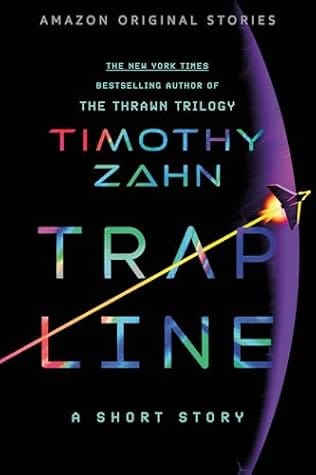His Share of Glory Book Review
His Share of Glory:
The Complete Short Science Fiction of C. M. Kornbluth
NESFA Press 1997
$27.00; 670 pages
ISBN 0-915368-60-9
I picked up this volume because I had read the [almost] titular short story "That Share of Glory" in Jerry Pournelle's Imperial Stars: The Stars at War. I was pleasantly surprised at how much I liked just about every story contained within. I suppose I shouldn't be. Jerry Pournelle remains among my all time favorite writers, and I trust his judgment about other interesting authors.
This book comes in at 670 pages, and it only represents the scfi short fiction of Kornbluth. Not his novels, and not short fiction in any other genre. That is an impressive corpus of writing for a man who only lived to be 34. As Tom Lehrer almost said, by the time Kornbluth was my age he was dead.
Some of Kornbluth's short stories are famous. "That Share of Glory", "The Little Black Bag", and "The Marching Morons" are his best, and best known works. Another in this collection that I especially liked was "Gomez", the tale of an unlikely nuclear physicist who finds and then loses great power. The stories I didn't like as much, I still liked a lot. I even liked the stories the in back, set in a smaller font, that came with a warning that they were early works written quickly to fill space in pulp magazines. You have to be damn good to write stories that way that anyone wants to read 75 years later, and Kornbluth was.
While most of these stories are scifi, there were a couple that reminded me a bit of Lovecraft and Howard: uncanny and disturbing. Judging by their frequency, this wasn't his specialty, but I enjoyed them nonetheless. His speciality seemed to be journalism. Stories like "The Silly Season" and "Make Mine Mars" show marks of Kornbluth's time as a wire-service reporter in Chicago. This is important, since I'm always interested in what makes a given author's work "hard" scifi.
While Kornbluth wrote some space opera featuring technology nigh unto magic, most of the works in this volume focused on reasonable extrapolations from Kornbluth's encyclopedic knowledge. I mean that literally, since Kornbluth acquired his facts by reading an encyclopedia front to back. However, it isn't really the technology that makes this hard scifi. Kornbluth displayed a keen insight into human motivations, combined with a reporter's cynicism for the tawdriness of ordinary life. Sometimes scifi can be rightly castigated for incomplete or wooden characterization. This is not true of Kornbluth; he understood the human condition, and wrote about it with the authority of a jaded confessor.
Kornbluth was taken from us too soon; he might have been a yet more remarkable author had he lived longer. What might have been is a fit subject for another story. In the meanwhile, you just need to read Kornbluth. This is what the golden age of science fiction is all about.

Comments ()